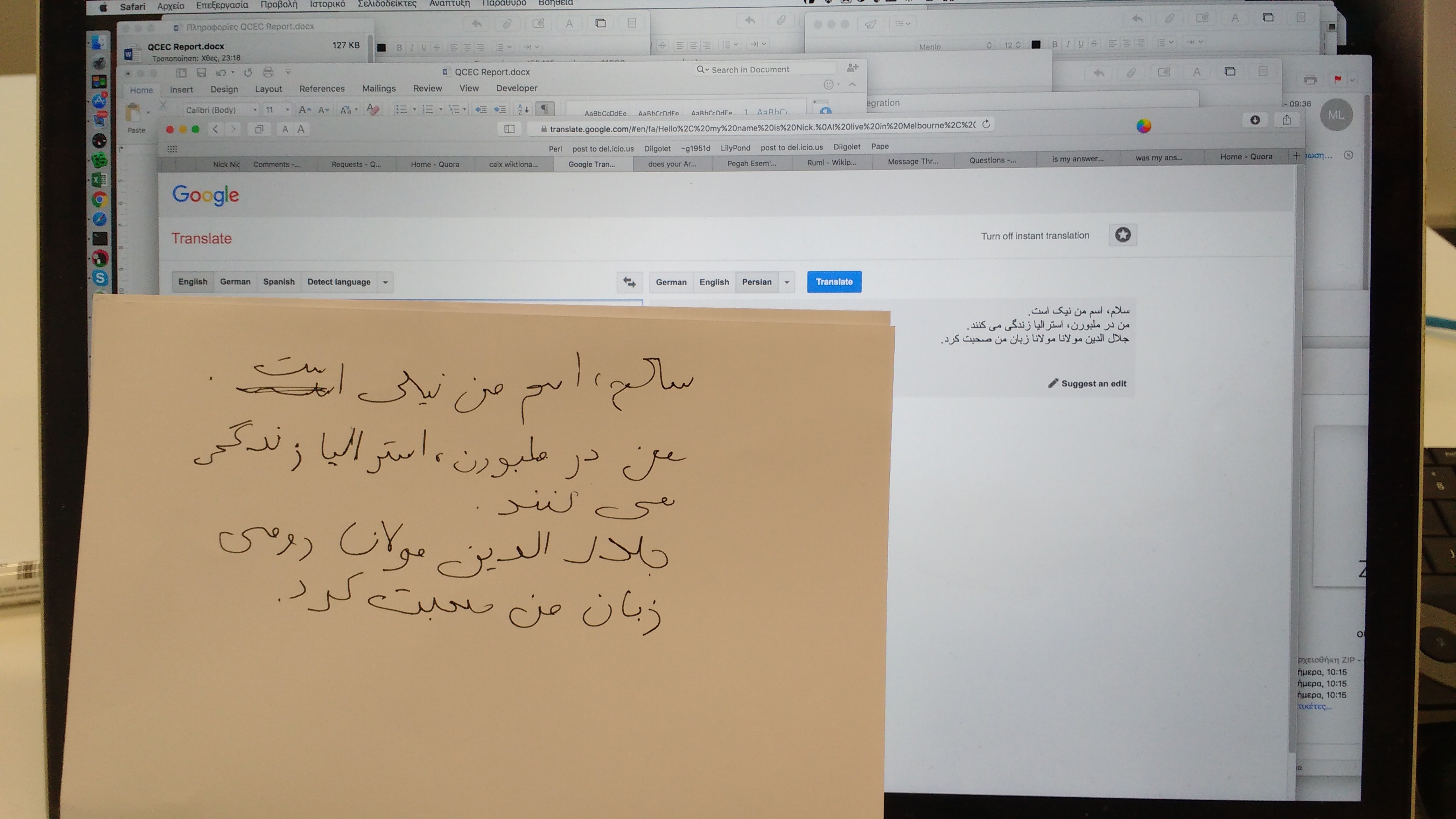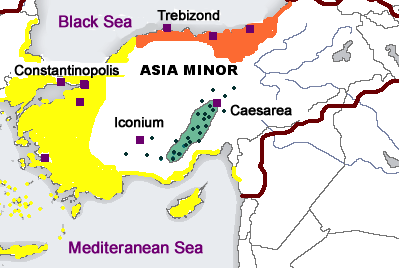Not mutually intelligible. At all.
The bizarre thing with Tsakonian is: the non-core vocabulary, you can understand, because it’s pretty much the non-core vocabulary of Greek. Except you’ve got some quite massive regular sound changes to deal with, which were regularly applied even to modern loans. [ɣramatici] for example, “grammar”, ends up as [ɣramacitɕi].
But the grammar is massively simplified (it’s actually a lot like English); and the core vocabulary, in between Doric survivals, archaic vernacular words, and massive sound changes, is unrecognisable.
I’ve found a Tsakonian Berlitz online. I’m bolding the words that a Modern Greek speaker would understand without effort (and italicising the words they would recognise as archaic). I anticipate people saying “but I recognise X! or Y!” Not conversationally and without prior exposure, you wouldn’t. Although I suspect by the end of the passage, readers will have worked out the main sound changes.
The writer btw ignored the aspirated stops. I’ve put them back in.
Τσ’ έσ’ ποίου;
How are you?
Εζού κά έννι, αφεγκία ντι.
I’m fine, how about yourself?
Καούρ εκάνατε καμπζία.
Welcome children. [No, that’s not “you do”. You recognised εκάνατε wrong.]
Καούρ ερέκαμε νιούμου.
Well have we found you.
Καούρ εμαζούμαΐ.
Well have we gathered. [OK, that word has something to do with μαζί, “together”, I’ll give you that.]
Που ντ’ έν’ αούντε;
What’s your name?
Μ’εν’αούντε Αλέξαντρε.
My name is Alexander. [Finally!]
Τσούνερ έσι;
Whose [child] are you?
Εζού έννι τα μάτη μι, τ’αφεγκη μι τσαί του παπού μι εγγόνι.
I’m my mothers, my father’s, and my grandfather’s grandchild.
Καλημέρα μαμού, τσ’ εσ’ ποία; Εσ’ θέα να ντι ποίου κανένα θέλημα;
Good morning grandmother, how are you? Do you want me to do you any bidding? [Hopefully by now you’ve worked out they’re using the ancient word for “do”]
Καώς το, το καλέ καμπζί, όνι θέα τσίπτα καμάρζι μι.
Welcome, such a fine child! I want nothing, my pride. [You might have even worked out that they’re deleting all their lambdas before back vowels.]
Έα όρκο μι, να ντι δίου κάτσι.
Come my oath [darling], I’ll give you something.
Χάγγε τθο καλέ, να έσι κά.
Go to the good, be well. [That’s not a vocative! o > e after coronals]
Ευχαριστού πάσου, καλέ να ’χερε.
Thank you very much, may you have goodness.
Ούρα κά, άι α πορεία ντι.
A happy hour, may your road be smooth as oil.
Να ζάρε τθο καλέ, τθαν ευτζή του Χρζιστού τσαί τα Δεσποίνη.
May you go to the good, to the blessing of Christ and Our Lady.
Αγακητέ μουσαφίρη καούρ εκάνερε τθα χώρα νάμου.
Dear guest, welcome to our village.
Οι τσακώνοι είνοι περήφανοι αθροίποι.
Tsakonians are proud people.
Είνοι αγαπούντε του γραφτοί τσαί τουρ άγραφτοι νόμοι.
They love written and unwritten laws. [As soon as we go into speech making, the words are recognisable.]
Έσι καοδεχούμενε σου χωρζίς να ντι κολαντσέγγωι.
You are welcome by them without them flattering you.
Είνοι αγαπούντε πρεσσού τα πάστρα.
They love cleanliness a lot.
Άμα τθα πορεία ντι θα ρέσερε βρωμίλε ούνοι έχουντε σι ποιτέ Τσακώνοι.
If on your road you find filth, Tsakonians have not done it.
Κά να περάρε εκιού τσαί οι κολέγοι ντι, για να μόλετε ταν άβα χρονία κίσου.
Have a good time, you and your friends, and come back next year again.
… So. Greek-speaking Quorans. How did you go?
Update, cc Dimitra Triantafyllidou Lara Novakov Dimitris Sotiropoulos
You know what the very definition of badass is?
Let me tell you what the very definition of badass is.
Maxim L. Kisilier. Born in Russia. Bred in Russia. Learned Ancient Greek in Uni. Lecturer in Greek at St Petersburg State University. Has done some fieldwork oin Tsakonia.
Seen here, delivering the welcoming address to the Annual Tsakonian conference in 2013. With lots of grammatical examples.
IN TSAKONIAN.
For twelve minutes straight. (He then has to summarise in standard Greek.)
And, incidentally, with a Russian accent.
This man is badass.
Pity there is no way on earth the locals will accept his proposed orthography…
(I feel badass, myself, for almost understanding three quarters of what he’s saying.)

